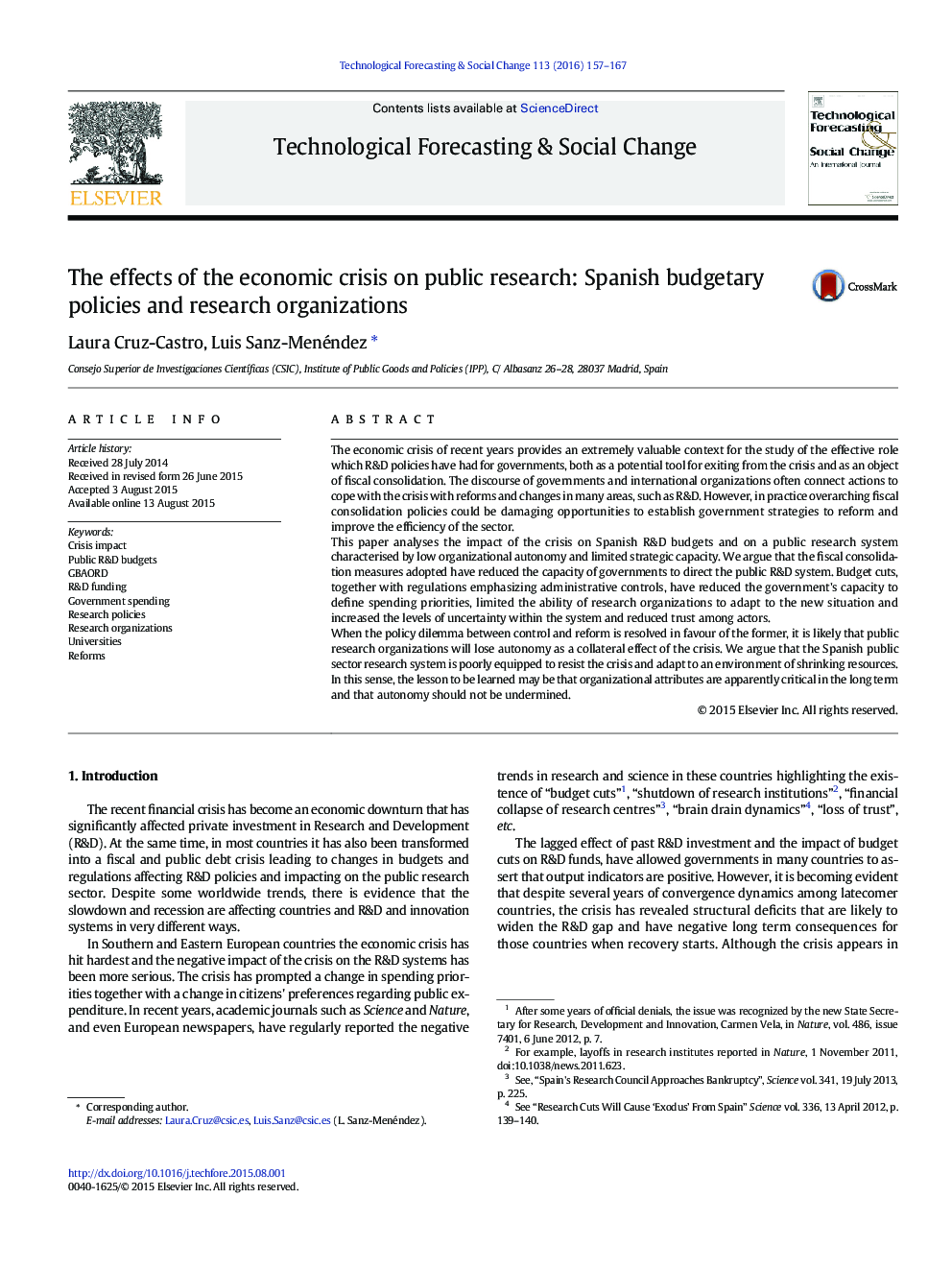| کد مقاله | کد نشریه | سال انتشار | مقاله انگلیسی | نسخه تمام متن |
|---|---|---|---|---|
| 5036958 | 1370204 | 2016 | 11 صفحه PDF | دانلود رایگان |
- Fiscal consolidation has reduced government ability to steer the public R&D system.
- The reduction of salaries, funding and new positions has resulted in stagnation.
- The adjustment has been amplified by general expenditure contention mechanisms.
- Spanish public research organizations are poorly equipped to resist the crisis.
- PROs should be given more managerial autonomy and the ability to set priorities.
The economic crisis of recent years provides an extremely valuable context for the study of the effective role which R&D policies have had for governments, both as a potential tool for exiting from the crisis and as an object of fiscal consolidation. The discourse of governments and international organizations often connect actions to cope with the crisis with reforms and changes in many areas, such as R&D. However, in practice overarching fiscal consolidation policies could be damaging opportunities to establish government strategies to reform and improve the efficiency of the sector.This paper analyses the impact of the crisis on Spanish R&D budgets and on a public research system characterised by low organizational autonomy and limited strategic capacity. We argue that the fiscal consolidation measures adopted have reduced the capacity of governments to direct the public R&D system. Budget cuts, together with regulations emphasizing administrative controls, have reduced the government's capacity to define spending priorities, limited the ability of research organizations to adapt to the new situation and increased the levels of uncertainty within the system and reduced trust among actors.When the policy dilemma between control and reform is resolved in favour of the former, it is likely that public research organizations will lose autonomy as a collateral effect of the crisis. We argue that the Spanish public sector research system is poorly equipped to resist the crisis and adapt to an environment of shrinking resources. In this sense, the lesson to be learned may be that organizational attributes are apparently critical in the long term and that autonomy should not be undermined.
Journal: Technological Forecasting and Social Change - Volume 113, Part B, December 2016, Pages 157-167
